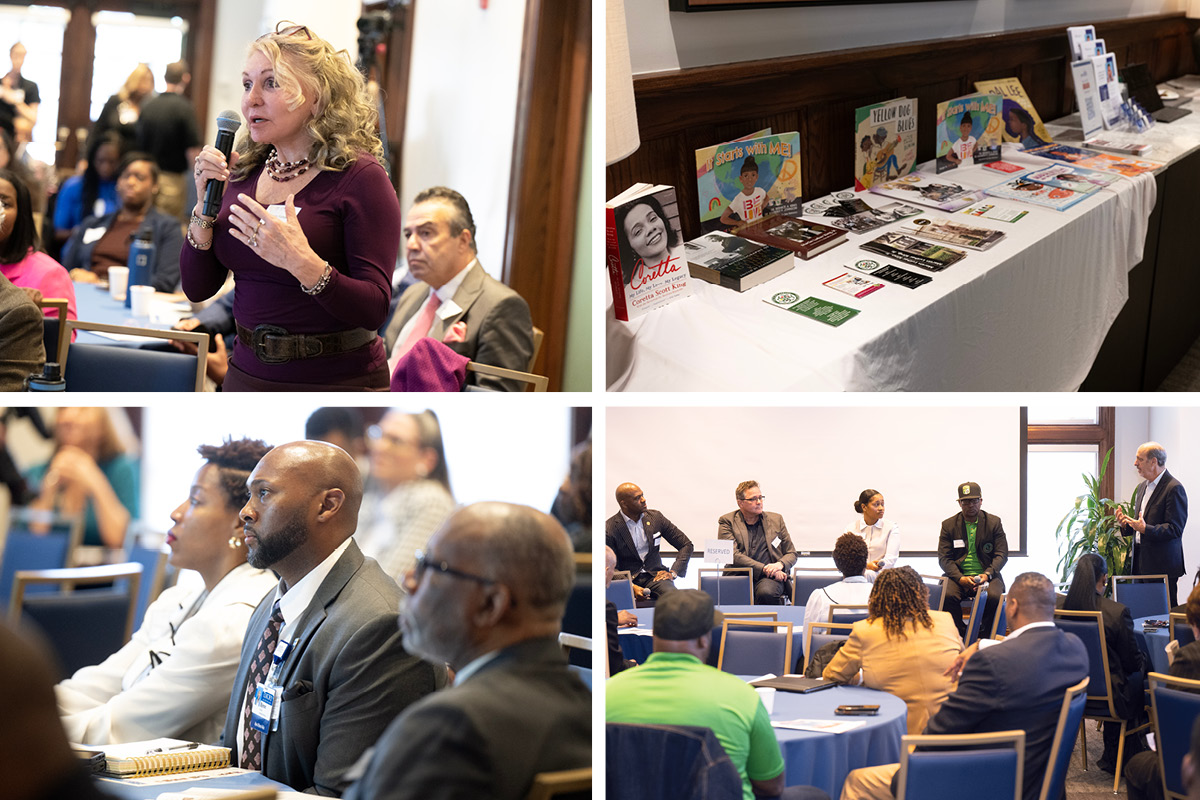Working against Gun Violence

One person dies from gun-related injuries every 11 minutes in the US. To address this epidemic, policymakers, community organization members, and other stakeholders gathered on the Emory campus for the second Violence Prevention Symposium.
Organized by 100 Black Men of Atlanta with Emory, the Satcher Health Leadership Institute at Morehouse School of Medicine, and the Dr. Martin Luther King Jr. Center for Nonviolent Social Change, the symposium focused on reducing gun violence. “Gun violence is probably the most inequitable health problem that we live with,” said Mark Rosenberg, a physician who has served on the faculty at Emory’s schools of medicine and public health and led the Task Force for Global Health. “For every young white man killed with a gun, there are 20 young black men killed.”
Jonathan Rupp, director of the Injury Prevention Research Center at Emory, said, “We’re actively working in preventing gun violence by supporting research that engages young people to develop and test solutions. We’re also working with hospitals, law enforcement, and communities to identify and address hotspots for violence.
“For instance, we might find violence is happening on streets that are dark, and can work with Georgia Power to have burned out bulbs in streetlights replaced. Or if a hotspot involves teens and violence outside of school hours, we might work with a school to start an after-school program.”
Janikqua Cutno, director of the Violence Prevention Program at Emory Hillandale Hospital, said when a gun injury victim enters the hospital, they are matched with a “credible messenger,” someone from their community who has experience with gun violence and can offer counseling. “We can’t say we’re doing this work effectively if we aren’t addressing the root causes of violence, which are social determinants of health such as poverty and lack of opportunity,” said Cutno. “We’ve started bringing different community partners to the table to try to interrupt the cycle of violence.”
Other presenters included Art Powell, program director of the Offender Alumni Association, a group of formerly incarcerated individuals who get to know and talk with youth who’ve been involved in the juvenile justice system. The association runs a program for students called Real Talk about the Law and a summer program with sessions on life skills. Symposium presenters agreed that a more unified effort is needed.
“Are we going to fund the police force for the next 10 to 20 years? Of course we are,” said Vulcan Topali, professor of criminal justice and criminology at Georgia State University. “The same has to be true for these violence prevention programs.”
View a video of the Violence Prevention Symposium at Emory.
Email the Editor










